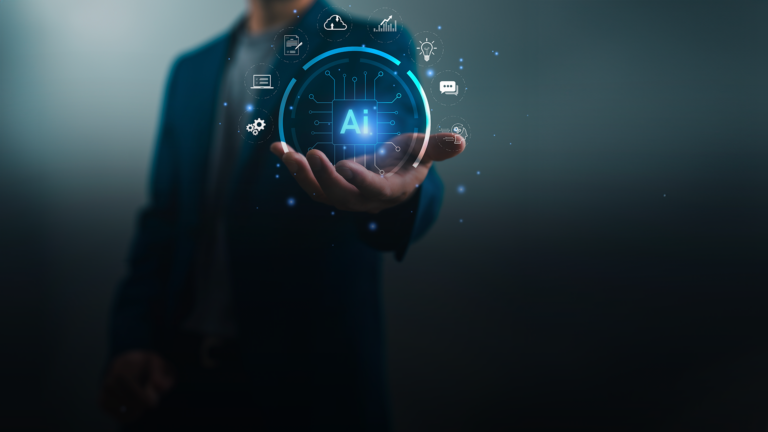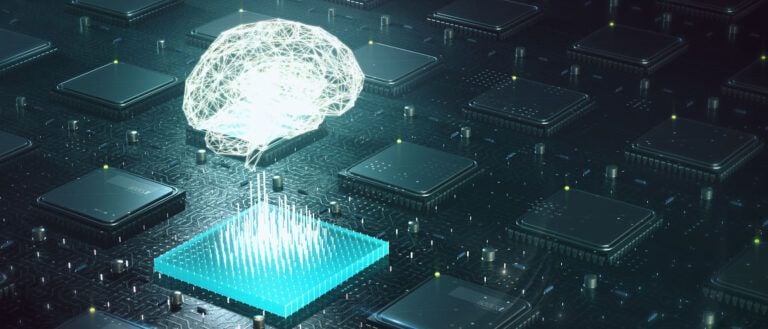AI for Coding: A Guide on How to Navigate the Future of Programming

- What are the Potential Implications of Generative AI for Coders and Their Roles?
- What Skills Should Coders Develop to Collaborate With Generative AI Technologies and Maximize Productivity?
- What Ethical Considerations Should Coders Know When Working With Generative AI in Their Coding Practices?
- What Can Coders Do to Stay Ahead in an Era of Rapidly Advancing Generative AI?
- What is the Future Role of Coders in an AI-Driven World, and How Can They Position Themselves for Long-Term Success?
- How Can Emeritus Empower Coders to Enhance Their Expertise With Generative AI Technologies for Sustained Success?
AI for coding is no longer a futuristic concept; it’s a reality that’s transforming the technology landscape. According to a report by McKinsey and Company, the rise of generative AI has brought about a paradigm shift, reshaping the software engineering landscape and creating challenges and opportunities for coders. As we delve into the implications of this revolution, it is crucial to understand how to navigate this new era and leverage it for success.
What are the Potential Implications of Generative AI for Coders and Their Roles?
The advent of generative AI, a potent subset of artificial intelligence, is causing a seismic shift in the coding landscape. It is not merely a tool; it is a transformative force automating many coding tasks, thereby enhancing the efficiency and productivity of coders. Let’s look at how it impacts their roles.
The Power of Generative AI in Coding
Firstly, generative AI is a game-changer in the realm of coding. It can generate code snippets, identify bugs, and even suggest improvements. This automation of coding tasks is a significant leap forward, saving time and boosting productivity. However, this doesn’t imply that the role of coders is becoming obsolete.
The Evolving Role of Coders in the AI Era
Far from disappearing, the role of coders is evolving in the face of generative AI. This technology doesn’t eliminate the need for coders. Instead, it revolutionizes their roles in the realm of AI for coding. Coders now find themselves needing to adapt and acquire new skills to work alongside these advanced technologies effectively. In a nutshell, the future of coding isn’t about man versus machine; it is about man and machine working in harmony.
ALSO READ: What is Coding?
What Skills Should Coders Develop to Collaborate With Generative AI Technologies and Maximize Productivity?
 Collaborating with generative AI technologies necessitates that coders develop a fresh set of skills. While traditional programming skills remain vital, they are just the starting point in this new era. Some pertinent skills to learn include:
Collaborating with generative AI technologies necessitates that coders develop a fresh set of skills. While traditional programming skills remain vital, they are just the starting point in this new era. Some pertinent skills to learn include:
1. Understanding AI and Algorithms for Effective Collaboration
To effectively leverage AI for coding, coders need a deep understanding of AI algorithms, data analysis, and machine learning. AI algorithms are growing in complexity and diversity. As a result, coders need to understand how these algorithms function, how to optimize them, assess their performance and troubleshoot issues.
2. Understanding Machine Learning
Machine learning, a cornerstone of AI applications, requires a comprehensive understanding. Coders need to grasp different types of machine learning, select the appropriate type for a problem, and implement it effectively. In essence, while coders may already possess these skills, the rise of AI for coding necessitates further development and refinement of these skills.
3. Deep Learning Knowledge
Generative AI relies heavily on deep learning. Therefore, coders need to understand how these models function and how to train and optimize them for efficient and intelligent applications.
4. Data Management
Generative AI models require extensive data for training. Coders need data collection, cleaning, and formatting skills to ensure high-quality data for AI models, leading to accurate outputs. Data analysis skills are also crucial as AI algorithms require substantial data for training. Coders need to be adept at data cleaning, transformation, and statistical analysis to ensure the data is fit for AI training.
5. Model Evaluation and Validation
After training an AI model, evaluating and validating its performance is crucial. Coders must understand performance metrics and validation techniques to ensure their AI models are reliable and effective.
6. Problem-Solving and Creativity
Along with the hard skills, coders need to get the right soft skills too. This is essential to communicate better with all involved parties, for one. Furthermore, generative AI can solve complex problems but it requires creativity. Coders thus need to think innovatively, design new AI models, and find novel applications for AI in coding.
7. Communication Skills
As AI becomes more prevalent, coders need to explain complex AI concepts to nontechnical stakeholders and collaborate effectively with their teams. Good communication skills ensure that everyone understands the capabilities and limitations of AI technologies.
What Ethical Considerations Should Coders Know When Working With Generative AI in Their Coding Practices?
Working with generative AI isn’t just about maximizing productivity; it also brings several ethical considerations to the forefront.
1. Building Fair and Transparent AI Systems
Coders need to ensure that the AI systems they develop are fair, transparent, and respect privacy. This means being aware of and addressing potential biases in AI systems and ensuring that AI outputs can be explained and understood.
2. Mitigating AI Biases for Ethical Coding Practices
As AI becomes more prevalent, coders must understand the ethical implications and practice responsible AI development. This includes understanding issues like bias in AI, where AI models may make unfair or discriminatory decisions based on the data they’ve been trained on.
It also includes privacy considerations, ensuring that AI models respect individuals’ privacy and do not misuse personal data. Finally, it involves considering the broader impact of AI on society and ensuring that AI technologies are used in a beneficial and fair way. Responsible AI practices are becoming increasingly important in the field of AI for coding.
ALSO READ: Machine Learning Fairness: An Antidote to AI Bias?
What Can Coders Do to Stay Ahead in an Era of Rapidly Advancing Generative AI?
In the AI era, coders must keep pace with the latest AI and Machine Learning (ML) advancements, understanding and applying new algorithms and techniques effectively. Continuous learning, both formal and self-directed, is essential. Adopting a growth mindset, participating in webinars, workshops, coding challenges, and contributing to open-source projects are critical strategies for coders to enhance their skills and ensure career longevity in the rapidly evolving field of AI for coding.
What is the Future Role of Coders in an AI-Driven World, and How Can They Position Themselves for Long-Term Success?
In the future, coders will increasingly collaborate with AI, using it as a tool to solve complex problems and create innovative solutions across various fields. For instance, in web development, AI can automate routine tasks, allowing coders to focus on more complex aspects of a project. In data science, AI can help coders analyze large datasets more efficiently. AI can automate the testing process in software testing, making it faster and more reliable.
The future isn’t about AI replacing coders but coders leveraging AI to solve complex problems. To ensure long-term success, coders must embrace AI-driven changes, commit to continuous learning, and deepen their understanding of AI applications. This proactive approach will secure their place in the evolving landscape of AI for coding.
How Can Emeritus Empower Coders to Enhance Their Expertise With Generative AI Technologies for Sustained Success?
 Emeritus is a guiding light for coders in the transformative era of generative AI. Emeritus demystifies AI and machine learning, offering a range of online courses and equipping coders with the knowledge to collaborate effectively with generative AI technologies.
Emeritus is a guiding light for coders in the transformative era of generative AI. Emeritus demystifies AI and machine learning, offering a range of online courses and equipping coders with the knowledge to collaborate effectively with generative AI technologies.
Coders can delve into AI algorithms, data analysis, and machine learning, learning to harness generative AI to automate tasks, enhance productivity, and drive innovation. By combining their existing expertise with skills gained from Emeritus courses, coders can ensure sustained success in this rapidly evolving field.
Emeritus fosters a culture of lifelong learning, empowering coders to adapt and stay ahead in the era of generative AI. With Emeritus, coders are not just surviving the AI revolution but thriving in it.
ALSO READ: Is There a Demand for AI Engineers? Can You Make It a Successful Career?
To conclude, as we navigate the transformative era of generative AI, it’s clear that the world of coding is undergoing a significant shift. However, this change isn’t something to fear but rather an opportunity to seize. With a commitment to continuous learning, technical and soft skills development, and a keen understanding of the ethical implications, coders can not only adapt but excel in this new landscape. The journey may be challenging, but the rewards are certainly worth it.
The future of coding is here, and it’s powered by AI. Ready to thrive in the era of generative AI? Explore Emeritus’ range of machine learning courses and artificial intelligence courses, and start your journey today.
Write to us at content@emeritus.org
















